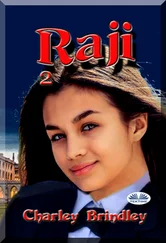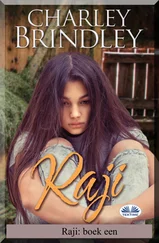But Kayin was no boor. She talked easily about Burma, her job at the hotel, and she asked questions about America and the freedoms we enjoyed.
At first I kept my answers short and to the point, not wanting to dominate the conversation. She moved from one topic to another, keeping a nice balance between questions and answers.
Our food came and an hour passed quickly, then another.
After the delightful dinner, we strolled for hours through the parks, past many temples, and all the way up to the Golden Palace, with its wide moat and tall towers at each of the four corners.
“Have you ever been inside?” I asked.
“The Golden Palace?” she said. “That is where King Rama lives.”
“Ah, King Rama’s palace. But have you been inside? I wonder what it’s like.”
“Oh.” She hesitated and watched one of the towers for a moment before she went on. “In the photos I have seen, it is, how you say, ornament?”
“Ornate,” I said.
“Yes, ornate. I am sorry my English is no so well.”
“Your English is wonderful. Will you teach me Burmese?”
She looked at me for a long time. “Why did you come to Mandalay?”
We stood at the edge of the moat, tossing pebbles into the dark water.
“I’m on my way to Myitkyina,” I said. “My friend is meeting me at the hotel in a few days. I signed the two of us onto a riverboat called the Gaw-byan . I guess we’ll be working as deckhands, I’m not sure. But we don’t mind hard work.”
“Why Myitkyina?”
“Just to see what’s there.”
“But what do you do?” she asked.
At that time, I still called myself a medical student. Actually, I was no longer one and probably never would be again. So what was I? A bum, that’s all I could think of, but I couldn’t tell her that.
“I’m a medical student.”
“When will you finish medical school?”
Her questions were much better than mine. She was getting to the heart of things, and I was feeling a bit uncomfortable.
“To tell you the truth, Kayin, I may never go back to school.”
“Why?”
“I’m discouraged, disillusioned, and sick of how the politicians and businessmen have ruined our world.”
“And you have come to my Burma to find what?”
What indeed. Why was I in Burma? Why was I anywhere? This wasn’t the way I thought our evening would go.
“I’m beginning to believe I came to Burma to find you.”
Kayin removed her sandals and sat on the edge of the moat. She splashed her feet in the cool water, then picked up a handful of pebbles.
“Not possible,” she said.
I sat down beside her. “What is not possible?”
She didn’t answer; only tossed the little rocks into the water, one at a time. I removed my shoes and socks. The water was much colder than I expected.
“It is not possible you came all this way to find me.”
“But I did find you.”
“Then you came for nothing, no reason.”
She seemed to struggle with her emotions as the stones splashed into the dark water. Finally, she turned toward me and held my gaze for a long moment, then she dropped the last stone into the moat and dusted off her hands.
“You see these eyes?” she asked.
I nodded.
“My eyes are from my Scottish father. All my life I have been an, how do you say, an outlaw?”
“Outcast?”
“Yes, an outcast. My people, the Burmese, treat me as untouchable.” She looked down at her hand, which I now held in mine. “Do you understand an untouchable in India?”
“Yes, a dalit, the lowest of the castes.”
“And the British treat me worse than they treat the pure Burmese. They think I am some sort of aberration. My mother was the only person who ever loved me, and she...” Kayin pressed my hand, and I knew she was crying. “I cannot never do this to another child to come,” she whispered.
“Kayin.” I lifted her chin and gazed into her wet eyes. “If you have a blue-eyed child, you think he will be treated as an outcast also?”
“Yes.”
“Do you believe you should remain childless all your life because of something your mother and father did as an act of love?”
She gave no response.
“You, my beautiful Burmese friend, should be proud you’re part of two different worlds. You are, I think, about eighteen or nineteen?”
“Nineteen.”
“We’re almost the same age. I’m twenty-one.” I reached for her other hand. “And you’ve just made me realize I’ve been beating myself up for the past six months for something that’s not my fault.”
She knitted her eyebrows in a look I’d soon learn to love.
“My friend and I left medical school because we were disillusioned with the mess the last generation had made of the world. We saw no purpose in continuing our studies just to carry our degrees to the bread line and beg for handouts.”
“But doctors are needed all over the world.”
“Maybe so, but we were determined to go into research and work on cures for malaria and smallpox. Now all the research projects have been shut down for lack of funding.”
“Research is fine,” she said, “but do you realize the British take all our resources, and what do they give us in return? Protection! Protection, they say, from invasion, from illnesses, from our own ignorance. If they would only give us a little medical help, we would be most grateful. But we have only a handful of doctors and nurses for our twenty million people.”
“Why, that’s ridiculous,” I said. “You should have one doctor and a nurse for every five hundred people.”
“This is very true, but we would be happy if only our seriously ill could see a doctor from time to time.” She was agitated now, and I smiled as I watched the blue fire in her eyes. She’d forgotten about her personal problems as she attacked the British overlords. “The smallpox epidemic that took my mother, killed many thousands, and nothing was done to help us.”
“But schools. I know the British provide schools and government administration.”
“Ha!” She laughed. “The British have wonderful schools, the best. They bring many teachers from England to teach their precious children the proper way of speaking and eating and how to rule over the poor, retched natives the once-proud Burmese people have become. Our children still squat in mud huts and watch someone scratch numbers in the dirt. That is your wonderful British education system.”
“And if you were queen of Burma, what would you do?”
“Please,” she said, pulling her hands from mine. “Do not make of me a fool. I am not a child that is to be indulged.” She looked away toward the palace. A light winked off in one of the tall towers.
“Believe me, Kayin, I never indulge anyone. I’m deeply interested in your thoughts and ideas about what’s to be done with the world. It’s our generation, yours and mine, that’s to repair the damage done by rich old men, living in their ivory mansions. A year ago, I would have argued against you and on the side of the British. But now, I don’t know what to think. I find it very difficult to take issue with you. I wanted our evening to be pleasant and beautiful. All afternoon, I thought only of how I could bring cheer into your life, and perhaps get you to like me a little. I really think of you as my intellectual equal, and when I ask what you would do if you were in control of your own country, I mean it as a theoretical question. What would you do if you suddenly had the power to do something for your people?” I didn’t know where this speech came from, but I was beginning to sound like the debater I once was.
Kayin looked at me for a long time. This wasn’t the look I remembered from our walk to the bank earlier that day, where our conversation was light and carefree. This was a look of antipathy or malice.
Читать дальше












